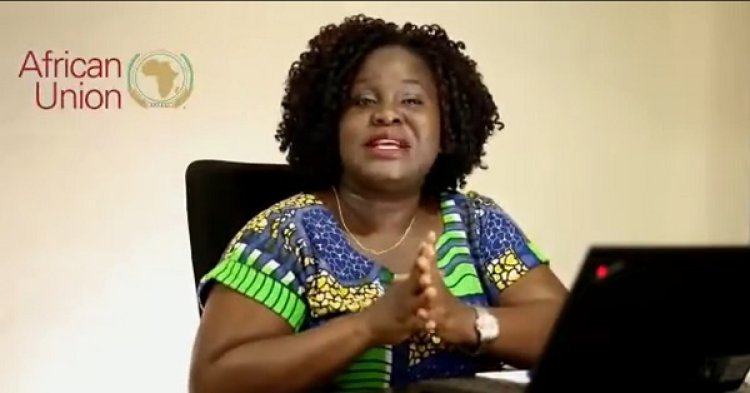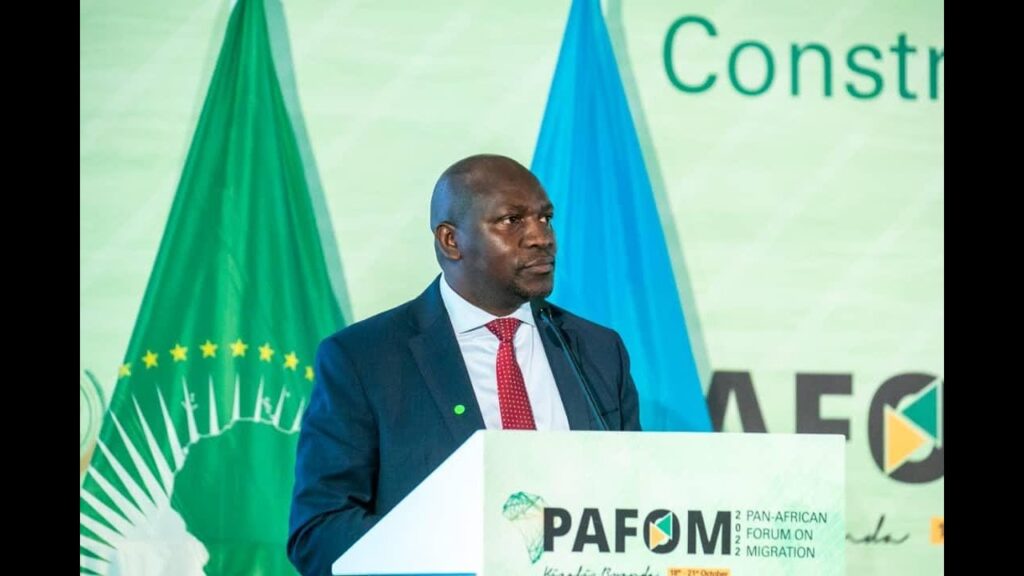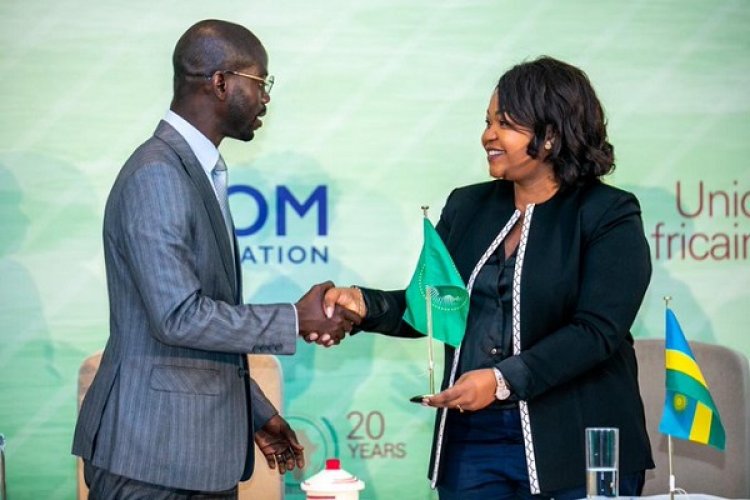The African diaspora has been expanding thanks, in part, to prevailing problems of poor governance and corruption which induce poverty and high unemployment levels that fuel migration both within the continent and towards other continents. Many Africans equally end up abroad owing to factors such as political instability, environmental factors and conflicts, among others.
ALSO READ: African youth demand Govts action on rising unemployment
Those departing, through deadly migrant routes in instances, are energetic and skilled young people, medical doctors, engineers, nurses, teachers, accountants, managers… name them, who leave their home countries in what’s dubbed ‘brain drain’, a phenomenon that robs African economies of the much-needed skills to meet development needs.
Angela N. Afoley Odai, Acting Head of the Diaspora Division at African Union Commission (AUC) tells NewsPaper Africa’s Johnson Kanamugire that with right policies this group could still contribute greatly to Africa’s economies boom, but there is need to ensure that their protection and rights are guaranteed while on the move and at destination.
Below are interview excerpts
———
Who qualifies as member of African diaspora?
The African Union definition of the African diaspora is anyone of African origin living outside the continent who, irrespective of their citizenship and nationality, wants to meaningfully engage in the development of the continent.
We have a department that works on mainstreaming diaspora participation and constantly engages diaspora organizations worldwide. We have Europe, Americas and Carribean, and Asia. The African diaspora is perceived as Africa’s sixth region [after East, West, North, Central region and South].
We look at how best to encourage member States to ensure that they put together the right mechanisms or frameworks to leverage their potential towards support of areas of our economies that need their interventions.
Are you able to weigh the contribution of the diaspora to the development of the continent?
We are looking at the diaspora of about 3.7 per cent of Africa’s total population approximately, and we are looking at how are we able to harness this potential.
That happens in form of financial remittances that they make, labour that they produce, the human capital that they bring on board, the kind of expertise that we get from the diaspora which impact us for example the statisticians, the professors or the doctors that come in to do a particular surgery for free or at very low cost.
In a nutshell, there are five diaspora projects: the only one that is in full operation is the Africa Institute for Remittances; the Pan-African Diaspora Investment Fund where we are looking at mutual funds, diaspora bonds, endowment funds for diaspora to invest for us to be able to trickle it down to various countries which actually need it.
ALSO READ: MBOKAZI: African migration not a problem to solve, it’s an opportunity
Then there is another one we are doing an assessment on and that is the Pan-African Diaspora Development Marketplace. This one focuses on innovation and entrepreneurship. We look at how to bring the diaspora businesses and SMEs to invest into the African continent.
We looked at Rwanda in East Africa, Morocco for North, Ghana for West and South Africa for the South and then we looked at Gabon for the Central Africa. We will share results with member States and proceed towards validation and finalization.
That leaves us with two legacy projects that are untouched: African Diaspora Professional Skills Database which we put on hold because we were having issues of confidentiality. Then the final one is the African diaspora youth volunteers corps.
A growing diaspora in light of ongoing migration outflows imply the brain drain problem is even worsening. How do you compare what Africa loses to this phenomenon in relation to gains from the diaspora contribution?
There is no straightforward answer to that.
Yes, as a continent we may have brain drain as a result of migration but the tough question is whether we are able to cater for the kind of workforce that we have within the context of employment when it comes to various member States and countries.
Here I give Ghana as an example because it has been known to export nurses to places like Cuba, Barbados and others. The issue is that Ghana produces too many medical people and the Government of Ghana cannot actually afford to employ all these people.
These are aspects to also take into consideration.
There have been cases of Africans migrant workers who are mistreated abroad, some are traded or abused in parts of the globe. How has AU dealt with these issues?
The AU is very concerned about these issues, and there is a lot of work we’ve done in this regard especially the joint labour migration program of the African Union, the International Labour Organisation, International Organisation for Migration and UN Economic Commission for Africa.
These entities have done a lot of research and engagement from the national up to the regional community levels, ensuring that these issues get the attention they deserve.
ALSO READ: Watch out if you think Europe is paradise – TETE
There is even a bilateral labor agreement that has been shared with member States to make sure that they look at all these aspects and make sure that they check all boxes before they sign agreement with these prospective host countries.
It aims to ensure that people are safe, secure and they travel in dignity.
A section of the diaspora still grapples with issues around repatriation of assets and benefits for those who worked and contributed to social security schemes abroad. Were these issues brought to your attention?
There has been a lot of negotiations in that respect especially with Italy and the Netherlands where legal provisions did not allow repatriation of assets and social security benefits.
So it depends on the country, and under the European Union (EU)-Africa framework we have the migration for mobility pillar, and the African Union puts emphasis on protection and rights of migrants and issues of return, repatriation and reintegration of migrants.
These issues are very high on the agenda so far as the EU-AU agenda is concerned.
READ: Govts in Africa mull migration policy changes to cater for climate refugees



